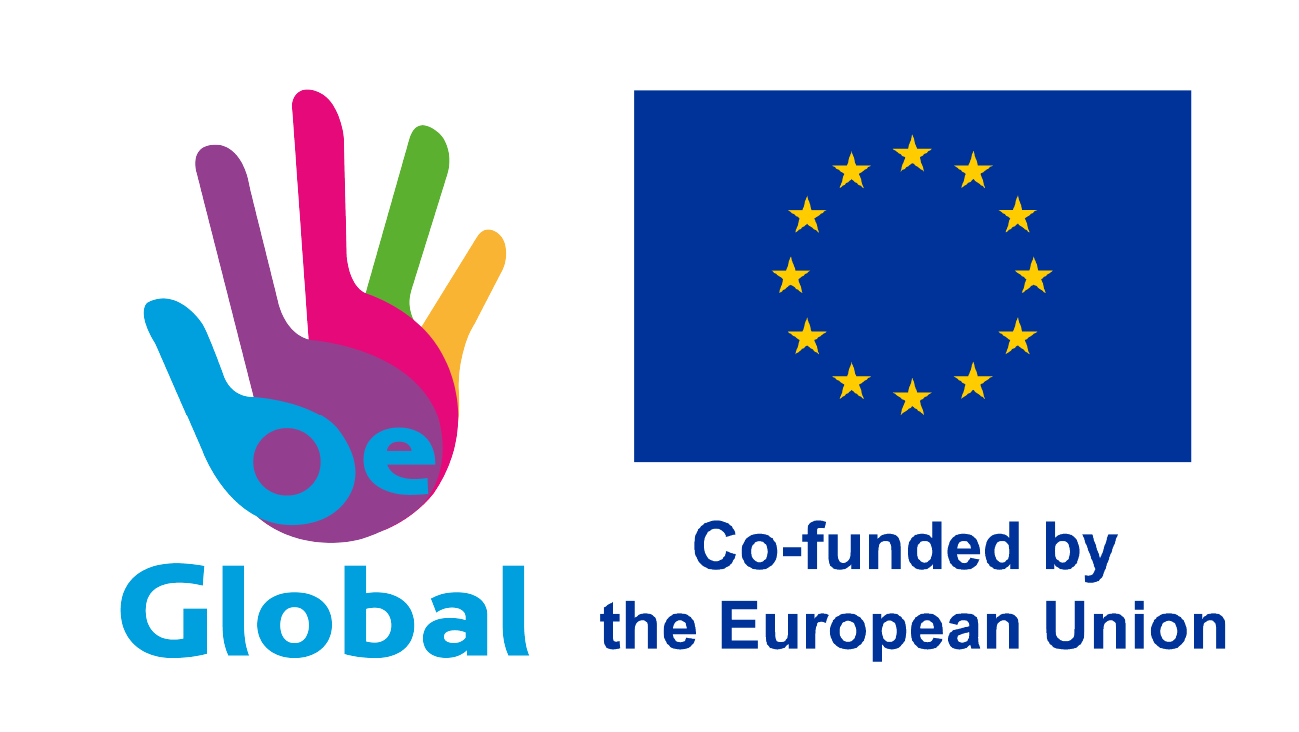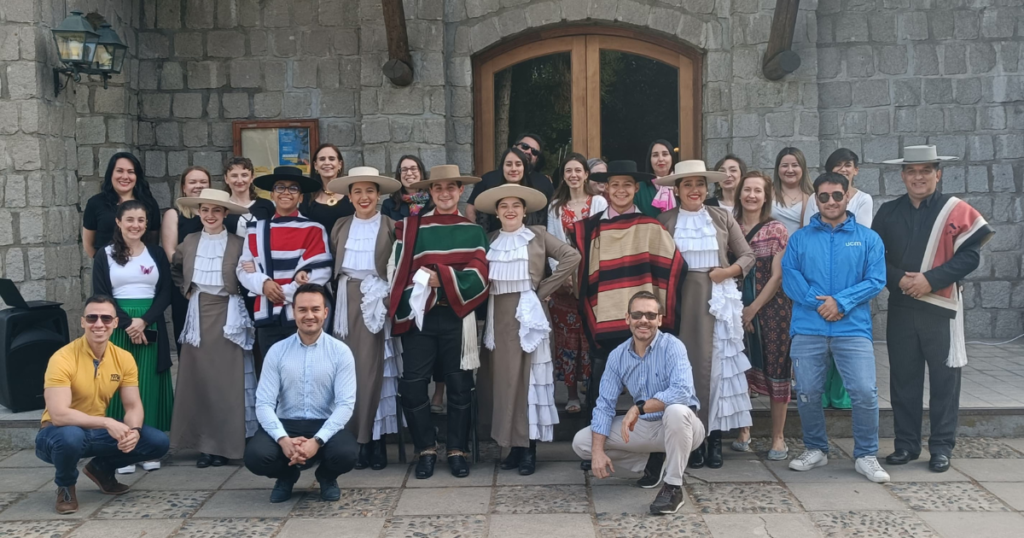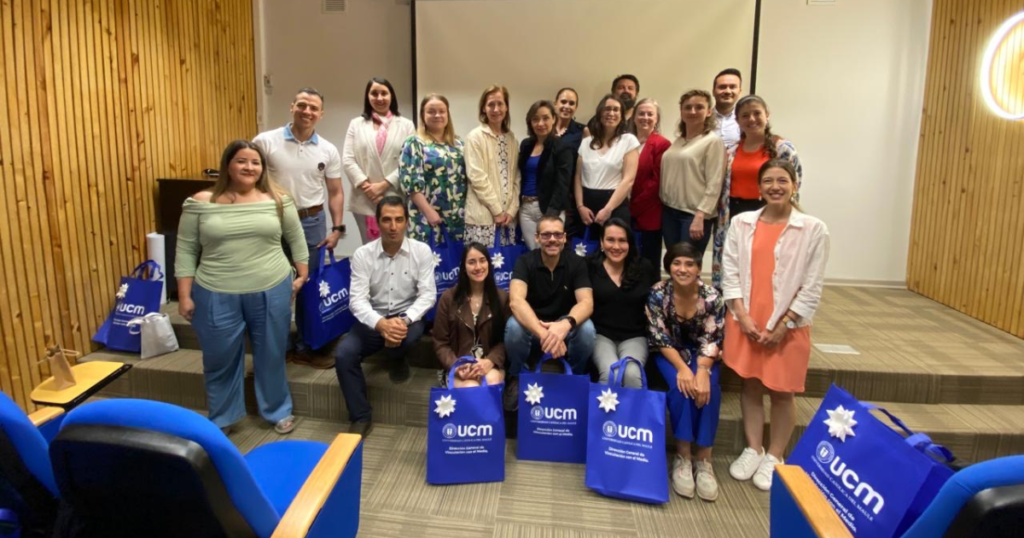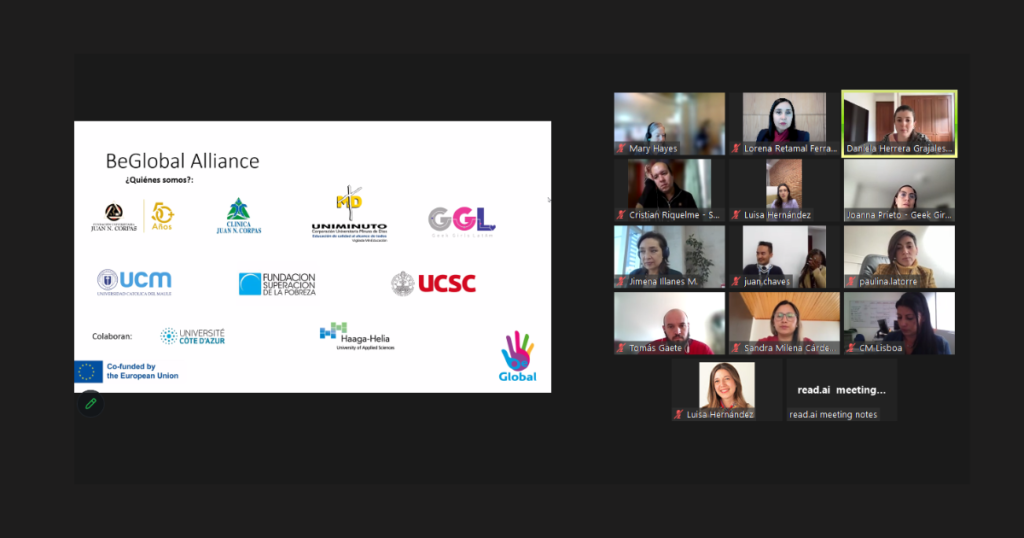Funded by the European Community, universities in France, Finland, Colombia and Chile are participating.
The integration that currently exists at the level of economy, trade, culture, technology, and many other areas between countries worldwide, is a phenomenon permanently studied by the social sciences and although its beginnings are a matter of debate, the fact is that its existence is recognized and experienced by most of the inhabitants of the planet, who with a few clicks on their computer or smart devices already have the possibility of being connected with people from anywhere in the world.
This concept is so important that even in the Strategic Development Plan of the Universidad Católica del Maule, within its vision, it includes it by declaring «To be a Catholic University of excellence and globalized, consistent with its guiding principles».
Therefore, it is essential that the professionals trained at this university be global citizens.
In order to address “Global Citizenship” in the curricular plan of the different programs of the University, together with other institutions around the world (Haaga-Helia University of Applied Science, Finland; Université Côte d’Azur, France; Corporación Universitaria Minuto de Dios and Fundación Universitaria Juan N. Corpas, Colombia and Universidad Católica Santísima Concepción, Chile), coordinated by UCM, are working on it, in a three-year initiative financed by Erasmus+ CBF funds. Corpas, Colombia and Universidad Católica de la Santísima Concepción, Chile), coordinated by UCM, are working on it, in a three-year initiative that is financed by the European Union’s Erasmus+ CBHE funds, which support international cooperation projects based on multilateral partnerships between organizations active in the field of higher education.
To begin this work, representatives of the institutions met at the Universidad Católica del Maule, where the project «BeGlobal: Become a global citizen through global competence and internationalization for society» was launched.
Jorge Burgos, UCM’s General Director of Outreach, explained that «it is a project that arises in collaboration with a consortium of 6 institutions and seeks to strengthen the skills of our students as global citizens, thus preparing them to become professionals in their respective areas of development who can put these skills into practice and connect with other realities and thus have a much better impact on each of the territories where they work».
Along the same lines Sini Bask, University of Applied Science, Finland, summarized what it means to be a global citizen. «A person who feels loyalty and support for the diverse world we live in,» she said”.
Integration into the curriculum
To give global citizenship the importance it deserves, Jorge Burgos explained that the key is «the articulation with all curricular development, so that it does not remain only as isolated initiatives, but that it lasts over time. Therefore, it is necessary to include global citizenship into the curriculum. Universidad Católica del Maule is working on it, throughout the General Directorate of Outreach and the Academic Vice-Rectory (Directorate of General Education)».
At the end of the kick-off meeting, Maria Hernandez from the Université Côte d’Azur, Nice France, made a very positive evaluation. «Because all the partners from Colombia, Chile, France and Finland are very motivated in this project on global citizenship, a good working team was formed and we are very happy and excited about the future of this project,» she said.
Luisa Hernández from the Corporación Universitaria Minuto de Dios (Uniminuto) of Colombia stated that «these projects are an opportunity to build capacities, to connect, to share the contexts of different regions and I believe that this has been the perfect opportunity to lay the foundations».
A similar concept was coined by Sini Bask from Finland, who said that the first meeting was «enriching», indicating that «since we share many values and reasons for being here, we could combine everything we are, in order to create a super-rich soup».
The project schedule indicates that the institutions will work on line, to hold a second face-to-face meeting in Finland in November, in which academics will join the teams and assess mobility opportunities for students from the Latin American institutions are also being considered, so that the benefit will be transversal.
Authored by: Communications Department
Universidad Católica del Maule




